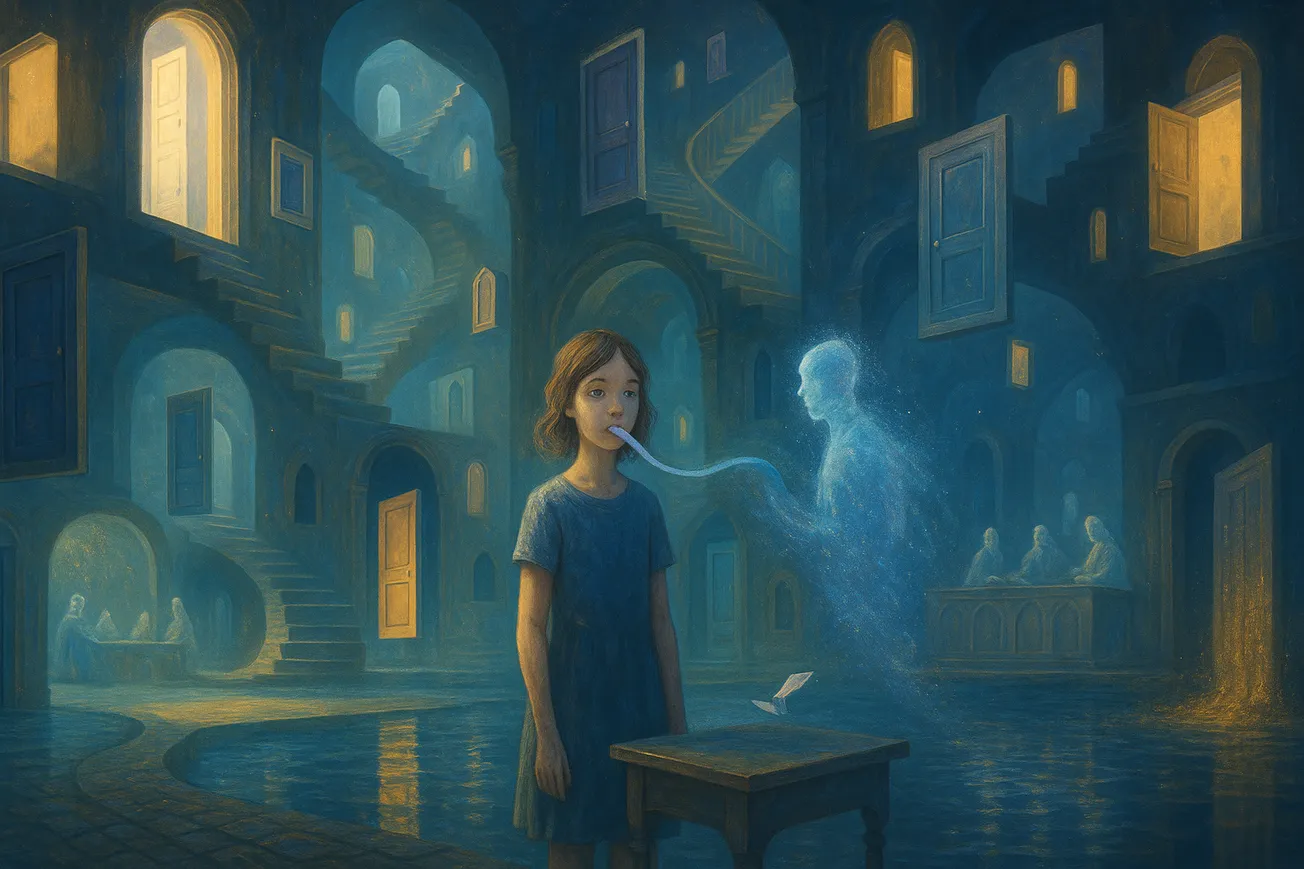🌈 The Fractal Story Engine | The Enchanted (Wonder, Cosmic Mystery) | (10) EN-001-F2
They said the house had three thousand doors, but no walls.
It shimmered on the edge of the city, tucked inside an alley that only appeared when you asked the right question out loud. Not everyone could see it. Fewer still were permitted entry. The house was older than gravity, yet younger than doubt. It rearranged itself according to the curriculum, which no one could recite and everyone obeyed.
Each door opened into a lesson. Each lesson carried a wound.
Mera entered through the third door on the right, where a set of stairs descended into a room lined with tongues. Literal ones. They were cataloged by species and mood. A voice instructed her to choose one. She picked the translucent blue tongue of a creature whose name was spoken only in tides. When she placed it in her mouth, her thoughts began to echo.
In that room, she learned to think without speaking and listen without hearing. Her thoughts wandered across spines of other minds. Some were velvet-soft, others thorned with shame. She met a gardener who remembered every word ever said to him, but none of the faces who said them. She met a child who screamed in silence and still made the windows rattle. She met herself, once, but younger, holding a jar full of bees who only stung when the truth was near.
She left that room and entered another: the Door of Others.
Inside was a courtroom, flooded ankle-deep with mirror-water. The defendants were not people but ideas. They had once lived inside creatures no longer extant. “Is it immoral,” asked the ceiling, “to trick a species into loving you if you only exist as a simulation?” A glass spider wept. A sentient song composed its own suicide. Mera had to choose whether to let a sentient virus stand trial or reproduce freely. She chose to listen to it hum instead. The judges nodded. The room dissolved into pollen.
She stumbled into another room by accident. No door at all, just a breath of air that pulled her sideways.
In that room, she woke a ghost.
The ghost was folded. It had been a musician, a mapmaker, and a liar, though not in that order. It hovered just above the floor, flickering between regrets. Mera reached toward it without moving. The ghost blinked.
“Which version of me would you like?” it asked.
“I want the one who never got born,” she replied.
The room quaked like an old throat swallowing. The ghost unravelled into something more ancient than sorrow. It pressed its story into her skin, letter by letter, until her memories hummed with melodies from instruments that had never existed.
Time passed differently inside the house. Days curled into seconds, then bloomed again.
Mera grew strange.
She began to teach without knowing how. Her words made objects vibrate. One student folded into a comma and refused to unfold. Another grew feathers when corrected. The lessons changed shape mid-sentence. No chalk, no screens, only thresholds.
On her ninety-seventh entry, she opened a door that no longer belonged to the house. Behind it stood a hill of forgotten first questions. Beneath it, something waited.
The thing beneath the hill was not a being, but a decision.
It pulsed.
Mera stepped forward.
She placed her hand against the stone and said nothing.
The house reconfigured. Somewhere, a bell forgot how to toll.
And still the doors opened.

